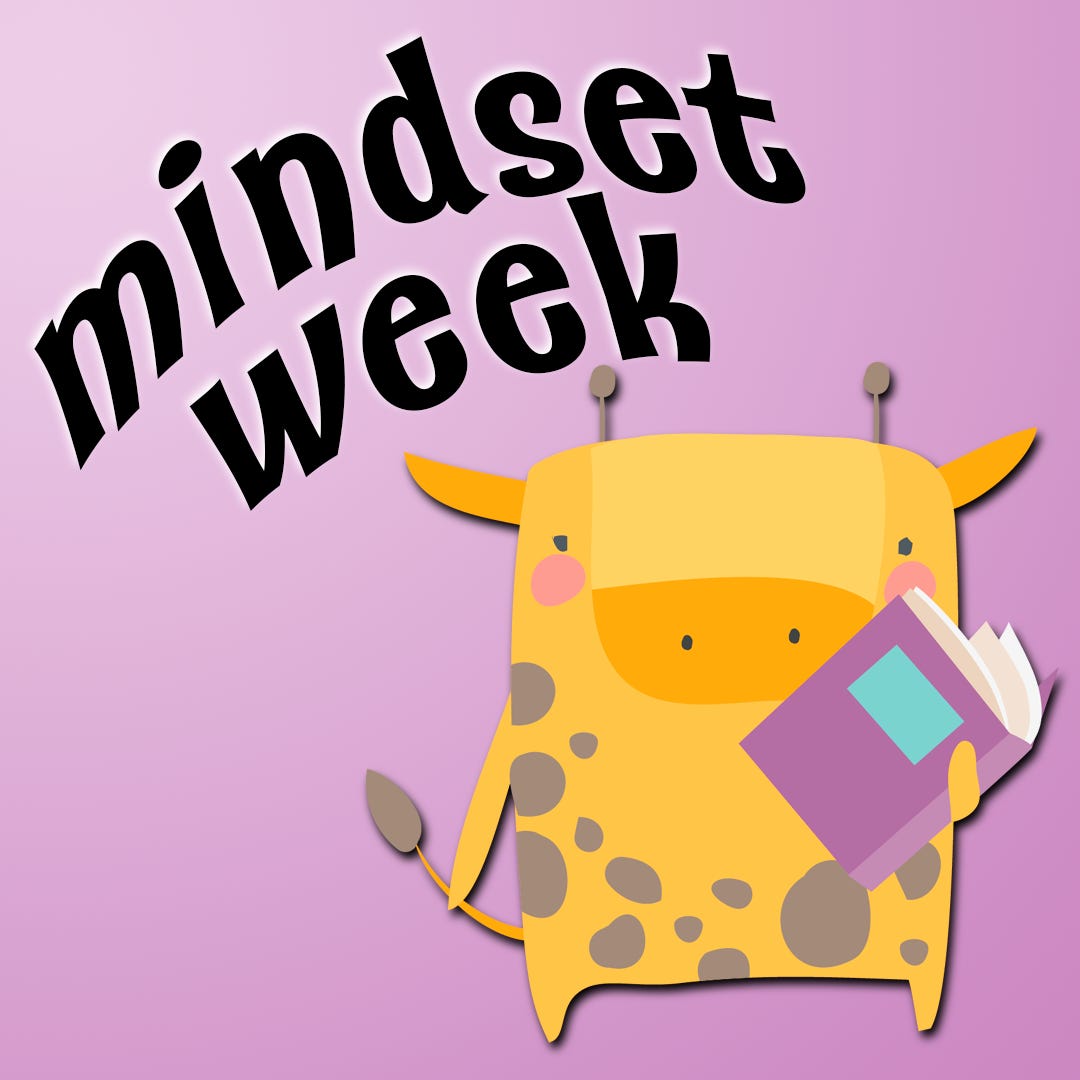Hey, Runners!
This week, we’re going to be talking about mindset, and I wanted to give you a heads-up that a lot of it is going to feel like therapy.
So let’s get this out of the way now—I am not a therapist. I am not certified in anything related to mental health, and I am not qualified to walk anyone through mental health issues. I am merely borrowing techniques learned in therapy that I found helpful when applied to my creative life, and showing you how you can do the same.
So upfront, I want to say: Some of the things we address this week and during the challenge might cause some mental weather for you.
You might get angry when I say to give yourself a break.
You might not trust that if you stop beating yourself up, you’ll still get the work done.
You might feel deeply ambivalent with the idea of only receiving What’s Your Favorite Part? feedback until you’ve finished at least your entire sketch draft.
If you identify with the thought, How am I going to become a better writer if I don’t hold myself to the fire? then the Running of the WIPs is going to be a life-changing experience for you… but it’s also going to be incredibly challenging.
So I’m about to tell you the one thing that you can do, not just for your writing, but for everything in your life.
And it’s taking the time to first recognize, and then process, your emotions and internal responses before you act on those emotions and internal responses.
It sounds simple.
It’s really fucking hard.
First step: Get a journal
The first step to doing writing mindset work is getting yourself a writing mindset journal.
This journal can be:
one of those lovely journals you’ve purchased at bookstores over the years but never wrote in because nothing you wanted to write felt worthy enough
a notebook app where you can jot down your thoughts by hand on a tablet
a Word document where you can typey-typey-typey all of your thoughts and feelings
the back of an old receipt and a pen; if you can write on it, it can work as a journal
Which actually makes a good point; your journaling writing can be temporary. You can throw it out immediately after and never read it. The benefit comes from the processing of the emotions, and the processing of the emotions comes from the writing.
Question: What is your favorite mode for journaling?
The value of journaling
A while back, I wrote in my Dear Writer Substack about blindfold journaling, and I highly recommend that you take a look at that if you struggle to journal.
Me… I struggle to journal. I hate journaling. I do not do it regularly. It’s not every day. But I have worked out my shit enough to know when the need to journal is upon me.
Here are some of my telltale signs:
Crankiness. The second I get cranky, something’s up. It took forever, but I finally learned that this is one of my tells that I need to journal.
In my feels. Everyone gets sad or melancholic or frustrated sometimes. But when I’m in my feels… meaning that these kinds of feelings are intense, and I can’t point to a clear source… it’s time to journal.
Dead inside. When my emotions are muted or hard to access, it’s time to journal. Usually, for me, this indicates that some trauma got activated by something, so it’s absolutely time to journal now.
Your telltale signs may vary, but you know how you’ll figure out what they are?
Journaling.
This will help you in dealing with mindset stuff. When you feel the need to argue with me, when you’re sure that I’m absolutely wrong about how you don’t need to hit a daily word goal or force yourself to write when you’re Just Not Feeling It, I encourage you to go to your journal first, and question why being gentle with yourself is such an outrageous concept for you.
I think you’ll be amazed at what you learn.







My favorite way to journal is either through a journal app like Goodnotes, or blindfold journaling on my computer. For deep feels, usually blindfold journaling is most helpful.
Back when I was in therapy/PSR,(PsychoSocialRehabilitation-learning to play well in the sandbox,[all the social rules I never learned as a child]), I had to journal, every week. I hated it. Still hate it; but I’ll do it for you,(and I suppose, me.
M